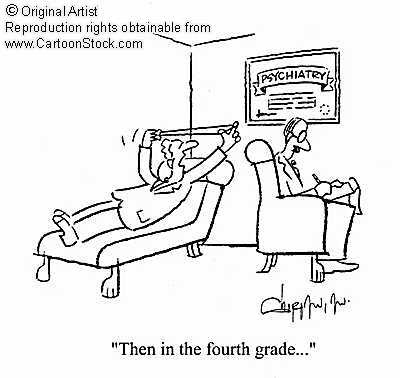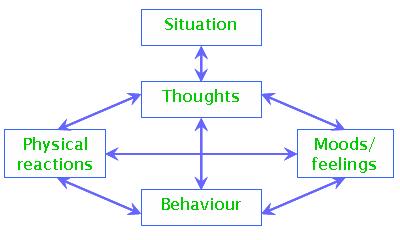Choosing a therapist these days can be like ordering a drink from Starbucks:
I’ll have a grande CBT lite DBT Gestalt-free psychotherapy with two shots of psychoanalysis and breve IPT.
This image came to mind have after dinner with a friend last night. She’s been in therapy for several years, and has decided to switch to someone with “a little more of a CBT focus… who still integrates interpersonal therapy but spends less time talking about family.” Hmm… good luck with that search, Rach.
The reality of it is, there are so many types of therapy out there. Just to give you an idea of how many:
- Art therapy
- Cognitive-behavior therapy (CBT)
- Dialectical-behavior therapy (DBT)
- Exposure therapy
- Family therapy
- Gestalt therapy
- Group therapy
- Integrative psychotherapy
- Interpersonal therapy
- Hypno-therapy
- Marriage counseling
- Music therapy
- Narrative therapy
- Play therapy
- Psycho drama
- Psychoanalysis
- Psychodynamic psychotherapy
- Psychoeducation
… and on and on and on. Granted, some of these are much more common than others, and you could probably lump a lot of them together, but you see my point — what therapy is right for you?
No one therapy has been proven to be the best choice with eating disorders (especially anorexia), so your perception of recovery and ED etiology will be largely influenced by your first therapist. I think very few people have much information on all of the available types of treatment (not to mention the different kinds of therapists, psychiatrists, social workers, doctors, nutritionists, counselors, etc.). And even if they did… how do you know which therapy to try? And what exactly is the focus of therapy supposed to be? What is the interaction between you and your therapist supposed to be like? How are you supposed to feel when walking out of therapy?
There are so many beliefs in the psych field right now, that maybe you do need to customize your treatment like you would your Starbucks drink. And beyond that, maybe you’ll need to just around between types of treatment… not necessarily because you chose wrong in the first place (although that’s common), but because you have different needs at different times in your life and stages of your disorder.
Where this gets tricky, though, is with the concept of “bad therapy” — and if you’ve read my other posts, you’ll know that I believe that there is bad therapy. Maybe the kind of therapy that you gravitate towards is appealing is because it allows you to perpetuate your disorder or to ignore some issue. You can draw pictures forever in art therapy and never change any eating behaviors. Or, you can talk about your meal plan every single week with a nutritionist and never bring up a bad relationship that you’re in. So, I guess what I’m asking… is to what extent is therapy supposed to be comfortable? Is it no pain, no gain?
Any input would be appreciated…
Technorati Tags:
anorexia, bulimia, eating disorders, Starbucks, therapist, therapy, psychotherapy, interpersonal therapy, art therapy, cognitive behavioral therapy, dialectical behavioral therapy, eating disorders treatment, exposure therapy, eating disorder therapist, family therapy, gestalt therapy, group therapy, psychoanalysis, nutritionist, treatment, bad therapy



